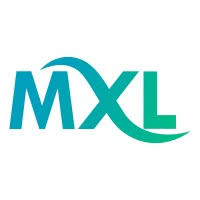
Lancejohnson1083
Uploaded on Oct 30, 2025
In today’s rapidly evolving business landscape, organizations across industries like finance, retail, banking, mining, healthcare, oil and gas, pharma, and insurance face an ongoing challenge — keeping employees skilled, compliant, and productive while adapting to constant change. Traditional training methods are no longer enough. Lengthy, one-size-fits-all courses fail to engage employees who are busy, mobile, and often geographically dispersed. Enter microlearning — the modern, agile approach to corporate training that delivers content in short, focused bursts designed to fit seamlessly into the workday. With the help of advanced Microlearning Platforms, AI-powered authoring tools, and intuitive learning management systems (LMS), organizations are revolutionizing how they train, upskill, and retain their workforce. Let’s uncover the secret to seamless and effective microlearning and how this approach is transforming industries worldwide. What Is Microlearning and Why It Works At its core, microlearning breaks down complex information into small, digestible modules — often lasting between three to seven minutes. These microlearning courses focus on one specific concept or skill, making them easier for learners to absorb, retain, and apply immediately on the job. The success of microlearning lies in how it aligns with how the human brain naturally learns and retains information. When learning is bite-sized, contextual, and repetitive, it enhances retention and recall. This approach also supports modern learners’ need for flexibility — allowing employees to access training anytime, anywhere, and on any device. Whether it’s compliance training in the banking and insurance sectors, safety drills in mining and oil & gas, or product updates in healthcare and pharma, microlearning ensures that critical information is delivered quickly and effectively. The Role of Microlearning Platforms Behind every successful microlearning initiative is a robust microlearning platform. These platforms are designed to create, manage, and deliver learning content in the most efficient way possible. Unlike traditional LMS systems that can feel clunky and overwhelming, modern microlearning platforms are intuitive, user-friendly, and highly interactive. They integrate AI-powered learning features to personalize content, recommend relevant modules, and track learner progress in real time. A well-designed Microlearning Application allows employees to learn in the flow of work — through mobile devices, tablets, or desktops. This accessibility boosts learner engagement and completion rates, ensuring training is not a burden but a value-adding experience. AI-Powered Authoring Tools: The Game-Changer Creating effective microlearning content used to require technical expertise, significant time, and resources. But with AI-powered authoring tools, this process has become faster and smarter. An AI-powered authoring tool can generate, adapt, and optimize training modules in minutes. It helps instructional designers and subject-matter experts create engaging videos, quizzes, simulations, and scenario-based content without deep technical know-how. For example, an HR professional in the finance sector can use an AI-based authoring platform to instantly convert a compliance document into a series of microlearning modules, complete with interactive assessments and visual elements. Similarly, a pharma training manager can rapidly update product training as regulations evolve — ensuring accuracy and consistency across teams. By leveraging automation and analytics, these tools also help organizations continuously refine content based on learner feedback and performance data. Microlearning LMS: Centralized and Intelligent Learning Management A Microlearning LMS (Learning Management System) brings together the creation, delivery, and tracking of training programs under one intelligent system. What sets a Microlearning LMS apart is its focus on agility and learner experience. These systems support microlearning software and integrate seamlessly with other business tools such as HR systems, CRM platforms, and compliance databases. They also include analytics dashboards to measure engagement, progress, and ROI, helping L&D teams make data-driven decisions. For industries like healthcare and banking, where compliance and accuracy are critical, a microlearning LMS ensures that training is up-to-date, trackable, and audit-ready. Employees receive instant updates on new procedures, while administrators get real-time insights into learner performance and completion rates. Industry-Wise Impact of Microlearning Finance & Banking: Microlearning helps professionals stay compliant with regulatory changes, fraud prevention practices, and cybersecurity protocols — all while minimizing downtime. Retail: Frontline employees can access quick product training and customer service modules on their smartphones, enhancing sales performance and customer satisfaction. Mining & Oil and Gas: Workers receive concise, safety-critical training that can be accessed even in remote locations, reducing accidents and ensuring adherence to safety protocols. Healthcare & Pharma: Doctors, nurses, and sales teams use microlearning to stay current with medical advancements, compliance guidelines, and product knowledge — ensuring accuracy and patient safety. Insurance: Agents and underwriters benefit from quick policy updates, risk management lessons, and client interaction training, driving better customer outcomes. The Future: AI-Powered Learning Ecosystems As AI continues to evolve, the next frontier of microlearning lies in AI-powered learning platforms that go beyond content delivery to predict learning needs, personalize journeys, and automate skill mapping. Imagine a platform that identifies skill gaps, recommends specific Microlearning Courses, and automatically tracks learning outcomes — all powered by intelligent algorithms. This is no longer a distant dream but a present reality in progressive organizations. With seamless integration between microlearning tools, AI-powered authoring platforms, and learning analytics, businesses are building a continuous learning culture — one that keeps employees future-ready and organizations competitive. Conclusion The secret to seamless and effective microlearning lies in combining the right microlearning platform, AI-powered authoring tools, and intelligent LMS systems to deliver impactful, bite-sized learning experiences. For industries like finance, retail, banking, mining, healthcare, oil and gas, pharma, and insurance, embracing microlearning is not just a trend — it’s a strategic advantage. By adopting modern microlearning software and AI-powered learning platforms, organizations can drive engagement, ensure compliance, and accelerate performance like never before. In a world where knowledge changes overnight, microlearning is the key to staying agile, informed, and ahead of the curve.

Comments